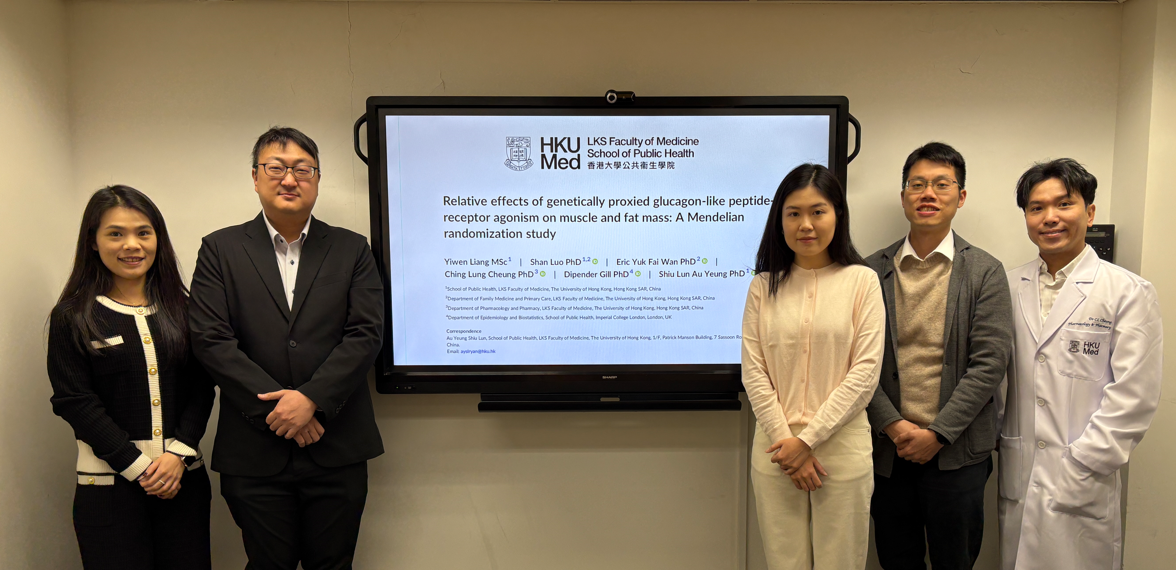e-Bulletin February 2025
IN THE MEDIA |
HKUMed Research Finds Genetic Evidence that GLP1R Agonists Reduce Much More Fat Mass Than Muscle
Using Genetics to Gain Insights into Drug Target Effects
A research team from our School has found genetic evidence that glucagon-like peptide-1 receptor (GLP1R) agonist, a class of medications for treating type 2 diabetes (T2D), reduce more body fat than they do muscle mass. This finding addresses recent concerns that GLP1R agonists might cause weight loss primarily by reducing muscle mass. The research findings were published in Diabetes, Obesity, and Metabolism (link to publication).
GLP1R agonists mimic the action of the glucagon-like peptide-1 hormone, crucial for blood sugar regulation, making them popular for T2D and obesity treatment. Concerns arose about potential muscle loss leading to frailty or sarcopenia during weight reduction. By analysing genetic data from over 800,000 Europeans, researchers identified a genetic variant (rs877446) associated with lower BMI, similar to GLP1R agonists’ effects.
This variant was linked to reduced body fat and lean mass, including whole-body fat-free mass and trunk fat-free mass. Although muscle mass decreased, body fat reduction was more significant. The study revealed a larger decrease in whole body fat mass compared to muscle mass, clarifying the impact of GLP1R agonists on body composition.
“This study highlights the use of genetics in understanding medication effects, especially when corresponding clinical experimental evidence is limited,” said Professor Ryan Au Yeung Shiu-lun, Assistant Professor of our School. “Genetic insights can guide us in making informed decisions about treatments and their impact on health.”
The study was led by Professor Au Yeung and Dr Dipender Gill, Clinical Research Fellow in the Department of Epidemiology and Biostatistics at the School of Public Health of Imperial College. Liang Yiwen, a PhD student of our School was the first author of the study. Other research team members from HKUMed included Professor Eric Wan Yuk-fai and Dr Luo Shan from the Department of Family Medicine and Primary Care, School of Clinical Medicine; and Professor Cheung Ching-lung from the Department of Pharmacology and Pharmacy.

